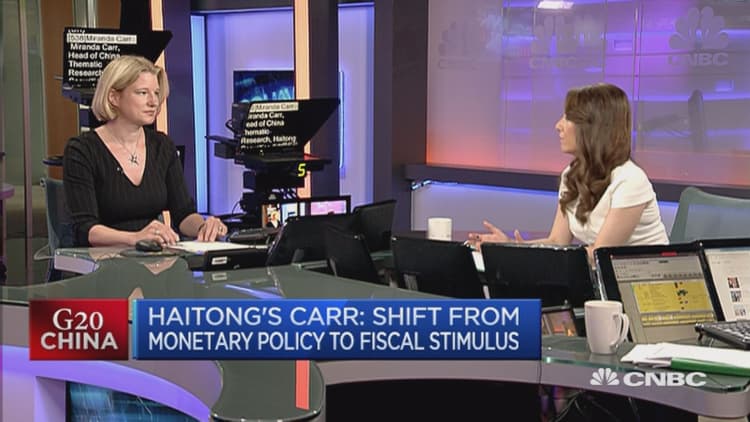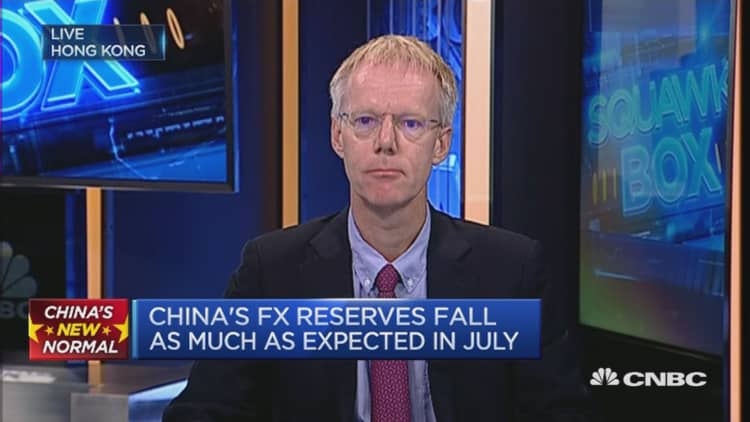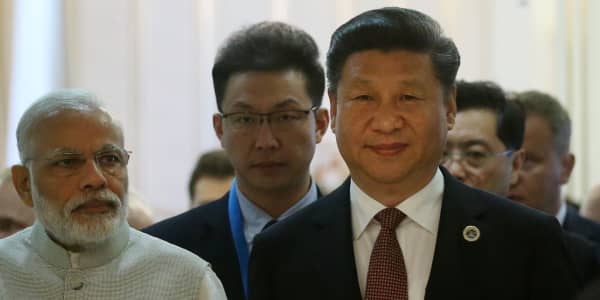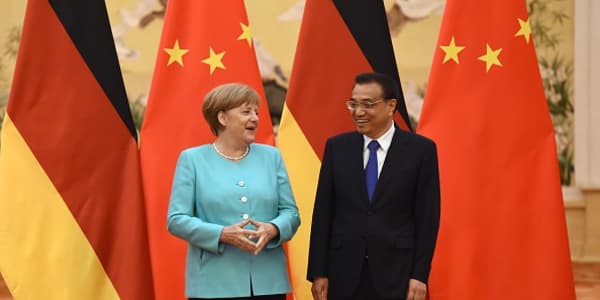China and the U.K. have a long history of international relations with around 400 years of diplomacy and trade between the two nations. But the relationship has not always run smoothly.
In the mid-19th century, China and then-powerful empire Britain fought two separate "Opium Wars" after the Chinese tried to stop Britain smuggling and selling the highly-addictive drug opium within the country.
When the Chinese lost to a more experienced British military they were forced to pay a fine to Britain, open up more ports to foreign trade as well as give the British control of the island of Hong Kong, starting a long history of trade and territorial links – a legacy that only ended when Hong Kong was handed back to China in 1997.
Since then, relations between the U.K. and China have improved. Former U.K. Prime Minister David Cameron led a trade mission to the world's second largest economy in 2015 and claimed that the visit had gained the U.K. trade and investment worth £40 billion ($52.4 billion).
In return, China's President Xi Jinping made a state visit to the U.K. last year that was hailed as a "defining moment" in Sino-U.K. relations. Displaying the best of British pomp and pageantry, the Brits treated China's top officials to a royal banquet at Buckingham Palace where Xi and his wife also stayed during their visit.
Trade relations and investments
The tables have turned since the 19th century, however, with China now importing more into the U.K. than the other way around.
In 2014, U.K. exports to China were worth £18.7 billion, according to U.K. government data, while. imports from China were worth £38.3 billion. The U.K. had a trade deficit of £19.6 billion with China, the government paper noted. China accounts for 3.6 percent of U.K. exports and 7.0 percent of all U.K. imports, making China the seventh largest export market for the U.K. and the third largest source of imports.
U.K. businesses are nonetheless keen to cash in on China's growing consumer class among its 1.3 billion population but, aside from exports, their toehold within China itself remains small. China remains a notoriously difficult place to do business, ranking at number 84 (out of 189 countries) on the World Bank Group's 2016 "Doing Business" index.
Despite the barriers to doing business, the U.K. government has encouraged its businesses to look eastwards for growth. In a U.K. government report last December, China was called the "great economic success story of the past 30 years" with a "huge and expanding market for U.K. businesses" with U.K. exports to China rising 9 percent in 2014. Carmaker Jaguar Land Rover was the U.K.'s biggest exporter to China that year.
The attraction is not one-sided either with the U.K. attracting Chinese investment in key infrastructure projects such as the high-speed railway development, HS2, and the development of a so-called "Northern Powerhouse" in the U.K. China is also involved in supporting a bid by French firm EDF to build new nuclear reactors at a U.K. power plant.

In 2015, the U.K. received $3.3 billion in foreign direct investment (FDI) according to data published in May by law firm Baker McKenzie, placing it among the top three countries for Chinese FDI, alongside Italy and France. In fact, Chinese FDI in Europe hit a record high of $23 billion in 2015, about 35 percent higher than investment in North America.
As of the fourth quarter of 2015, overseas holdings of U.K. government bonds (gilts) totaled £426 billion or roughly 27 percent held by foreign investors, according to the U.K.'s Debt Management Office although the debt agency told CNBC a geographic breakdown of overseas holders was not available.
In terms of mergers and acquisitions, another measure of China's appetite for U.K. assets, a number of high profile M&A deals took place in 2015 reflecting confidence in the country such as Hong Kong-based Hutchison Whampoa's acquisition of U.K. mobile telecom operator O2 from Telefonica for $15.3 billion.
The Institute for Mergers, Acquisitions and Alliances noted on its website that in 2015, 47 M&A deals ok U.K. companies by Chinese firms had been announced representing an increase of 74 percent compared to 2014. The value of those deals - £13.5 billion in 2015 - represented a jump of more than three times as much than 2014, it said, adding that Chinese companies had spent more than six times as much on acquisitions in the U.K. as British companies in China.
Similar to many Chinese companies looking to increase their global presence and invest in more developed markets, many Chinese individuals have been attracted to the U.K. property as a perceived "safe haven" for their cash while others have been drawn to the land of Stonehenge, quaint villages and actor Benedict Cumberbatch (known as "Curly Fu" in China where he has a huge fan club thanks to the popularity of exported BBC drama Sherlock) as visitors.
Statistics collected by the tourist board of Britain, Visit Britain, showed a 46 percent increase in the number of Chinese visitors to Britain in 2015 with 270,000 Chinese tourists making the 5,000 kilometer journey to the U.K. with a collective spend of £586 million (or an average £2,174 spend per visit).
The future?
Despite a diplomatic and economic rapprochement in recent years, the future relationship between China and the U.K. looks uncertain, particularly in light of the U.K.'s decision to leave the European Union (EU). However, several economists think the U.K. will look more attractive to China when it has "broken free" from EU trade rules.
Mark Williams, chief Asia economist at Capital Economics, told CNBC that the Sino-U.K. economic relationship had not been equally beneficial so far.

"China has seen the U.K. as a bridgehead into the rest of Europe. U.K. governments have long been more open to inward investment, with fewer qualms about selling national assets to foreigners, extending even to infrastructure, such as nuclear power plant Hinkley Point."
He noted that looking at the relationship from the U.K's perspective, its predominantly service-orientated economy had not been able to benefit as much from China's economic boom, however.
"The construction and investment intensive nature of the boom in China since the turn of the century has not been of great benefit to the U.K. – we don't have a large base of machine tool producers for example, unlike Germany. But many have been hoping that a rebalancing towards a more consumer and services driven growth model in China would suit the U.K. better."





